The or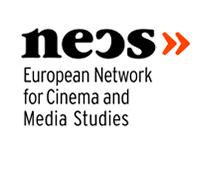 ganizing team of the NECS Conference 2013 “Media Politics – Political Media” in Prague (20-22 June 2013) have finalized the conference program. Below you find a list of all festival studies related panels, workshops and meetings.
ganizing team of the NECS Conference 2013 “Media Politics – Political Media” in Prague (20-22 June 2013) have finalized the conference program. Below you find a list of all festival studies related panels, workshops and meetings.
Pre-Conference Workshop
Wednesday, 19.6.2013, 17-20h
The Faculty of Arts in is Jana Palacha 2, 11638, Prague 1, Room 104
(followed by a reception in Cinema Ponrepo)
Reasearching Documentary Film Festivals. Academics vs Professionals
Participants:
- Aida Vallejo (Researcher on European Documentary Film Festivals, University of the Basque Country)
- Skadi Loist (Co-founder of Film Festival Research Network, Hamburg University)
- Andrea Slovaková (Director of AMU PRESS – Publishing House of Academy of Performing Arts in Prague)
- Katarina Holubcová (Executive Director of Jihlava International Documentary Film Festival)
- Hana Kulhánková (Director of One World Human Rights Documentary Film Festival)
- Diana Tabakov (Acquisitions in Doc Alliance Films)
- Miriam Šimková (Manager of East Silver Video Library)
- Hana Rezková (Project Coordinator – Institute of Documentary Film)
- Rada Sesić (IDFA Bertha Fund and Sarajevo Film Festival)
- Boris Mitić (Filmmaker and Producer from Serbia)
NECS Conference Panels
Thursday, 20.6.2013, Slot A, 9:00-10:45, Room 301
Panel A4: Modes and Practices of Participatory Engagement
Chair: Gavin Wilson (York St John University)
- Leshu Torchin (University of St Andrews): Advance Engagement: Crowd Funding and Publics Production for “The Yes Men Are Revolting”
- Ryan Shand (University of Glasgow): Excitement Lies Elsewhere: Teenage Digital Moviemakers and Commercial Culture
- Allister Gall (Plymouth University): Imperfect Makes Practice
- Aleksandra Sekulic (University of Arts in Belgrade): Low-Fi Video Festivals as Performance of Microcinema and Yugoslav Cine-Amateurism
Friday, 21.6.2013, Slot E, 9:00-10:45, Room 104
Panel E6: Questions of Method? Diagramming Unofficial Versions of Cinema (London and Mumbai)
Chair: Janet Harbord (Queen Mary, University of London)
- Gil Toffell (Queen Mary, University of London): Intergenerational Knowledge, Local Space and New Media
- Amit Rai (Queen Mary, University of London): Knowledge or Diagram? Or How to do Things with Film Festivals
- Janet Harbord (Queen Mary, University of London): The Trouble with Cinephilia: Doing Unofficial Things with Film in London and Mumbai Neighborhoods
Friday, 21.6.2013, Slot H, 15:45-17:30, Room 300
Panel H3: Alternative Film, Specialized Festivals: On the Politics of Festivals
Chair: Ger Zielinski (Trent University)
- Ger Zielinski (Trent University): Sexual Identities, Liberal Rights, Difference: On the Cosmopolitan Aspects of LGBT Film Festivals Here and There
- Ana Gilbert (Federal University of Rio de Janeiro): Disability Film Festivals: Territories of Biological Identity(ies)
- Greg de Cuir (University of Arts in Belgrade): The Fractured History of Avant-garde Film Festivals
- Mattias Frey (University of Kent): Cosmopolitanism, Exoticism and the “Sandwich Process”: The Programming and Discourse of Extreme Cinema at Film Festivals
Friday, 21.6.2013, 21.00
(after the NECS General Members Assembly 2013)
FFRN Get-together at the pub Kolonial (Široká 25/6, 110 00 Praha, near the conference venue)
Saturday, 22.6.2013, Slot I, 9:00-10:45, Room 104
Panel I6: The Politics in/of Chinese Alternative Media Culture
Chair: Victor Ho Lok Fan (King’s College London)
- Luke Robinson (University of Nottingham): The Body Politic(s) of Chinese Activist Documentary
- Jenny Chio (Emory University): Video Documentary and Public Culture in Rural, Ethnic China
- Hongwei Bao (Nottingham Trent University): “Guerrilla Warfare”: Spatial Politics and Socialist Tactics in the Organisation of the Beijing Queer Film Festival
- Qi Wang (Georgia Institute of Technology): The Concept of Surface in the Cinema of Jia Zhangke
Saturday, 22.6.2013, Slot J, 11:00-12.45, Room 300
Panel J3: Media Industry and “Economic Censorship” in Post-authoritarian/Transitional Economies
Chair: Ann Vogel (Humboldt University of Berlin)
- Valeria Zanier (Ca’ Foscari University of Venice): United We Win: The Delicate Balance of State and Private in China’s Media Industry
- Elena Pollacchi (Stockholm University): Glamour and Ruins: The Chinese Obsession to Walk the Red Carpet
- Dunja Jelenkovic (Versailles Saint-Quentin-en-Yvelines University): Use of Images for Political Purposes: Documentary Production of Radio Television of Serbia during the NATO Bombing of Yugoslavia in 1999
- Dennis Broe (Long Island University): Runaway Realism: How Italian Cinema Learned to Stop Worrying and Love the Box Office
Saturday, 22.6.2013, Slot K, 13:45-15:30, Room 300
Panel K3: Politics of Documentary Exhibition
Chair: Lucie Česálková (Masaryk University / National Film Archive, Prague)
- Aida Vallejo Vallejo (University of the Basque Country / Autonomous University of Madrid): The Rise of Documentary Festivals
- Andrea Slováková (Charles University): Jury’s(diction) – Hit Making – The Internal Structures of a Festival Jury’s Decision-making
- Veronika Klusakova (Palacky University in Olomouc): The Role and Purpose of Science Film Festivals
- Anna Wiehl (University of Bayreuth): Beyond Observation: Interactive Documentary, Perception and Participatory Culture
Saturday, 22.6.2013, Slot L, 15:45-17:30, Room 131
Panel L1: The Film Festival Circuit: The Role of Festivals for Global Film Circulation
Chair: Elena Pollacchi (Ca’ Foscari University of Venice)
- Skadi Loist (University of Hamburg): Network Exchange: The International Film Festival Circuit and Global Film Circulation
- Marijke de Valck (University of Amsterdam): Circulation and Promotion of Alternative Filmmaking through Film Festivals
- Maria-Paz Peirano (University of Kent): Making the Festival “Home”: Chilean Cinema and its Circulation in European Film Festivals
Saturday, 22.6.2013, Slot L, 15:45-17:30, Room 300
Panel L3: Trasforming Reality: Screenwriting and Development in Creative Documentary Filmmaking
Chair: Aida Vellejo Vallejo (University of the Basque Country / Autonomous University of Madrid)
- Jan Gogola (FAMU): “Documentary” is not the Twin of the World: Understanding Reality as a Genre Structure – Contemporary Tendencies in Creative Documentary Screenwriting
- Hana Rezkova (Institute of Documentary Film): Self-constituted Buffer: Documentary Film Development and National Film Policies in Visegrad Countries
- Marek Hovorka (Director of Jihlava International Documentary Film Festival): Deepening the Structure of Documentary Film Development: Innovative Industry Projects of Documentary Film Festivals


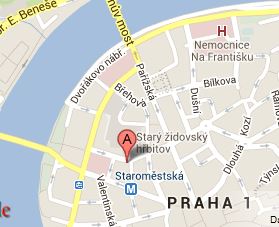

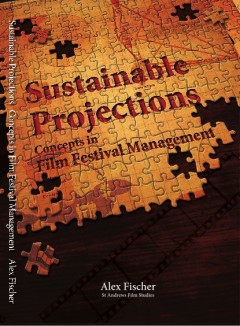

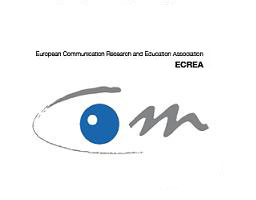
 mission of pre-constituted panels by members of the FFRN to the Screen Studies Conference (Glasgow, 28-30 June 2013) was very successful. According to the preliminary program note circulated to accepted presenters there will be 3 panels and a few single papers on film festival research at the conference.
mission of pre-constituted panels by members of the FFRN to the Screen Studies Conference (Glasgow, 28-30 June 2013) was very successful. According to the preliminary program note circulated to accepted presenters there will be 3 panels and a few single papers on film festival research at the conference.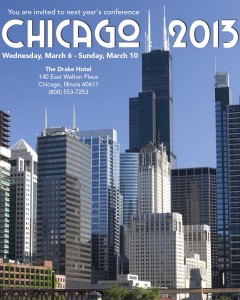 he
he